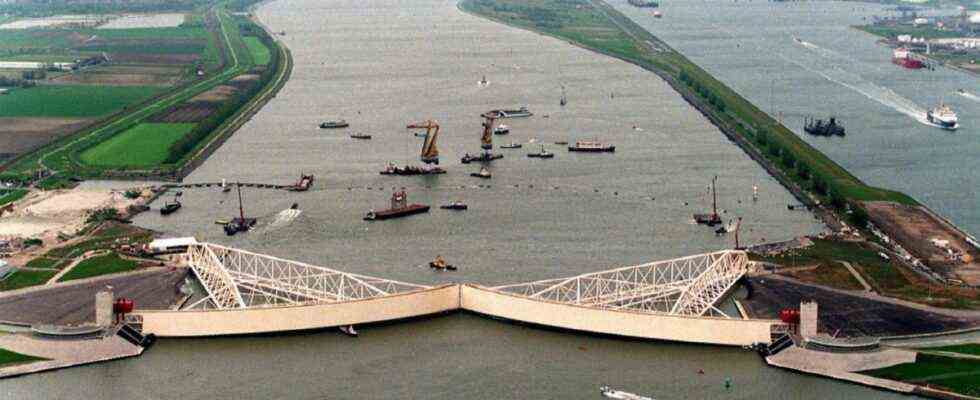Is the sea level rising? But we know that. Or? By how much again by when exactly? In the worst case, by three meters by 2100 and five to eight meters a century later. This is what the forecasts of the Royal Netherlands Meteorological Institute say, and if they have been corrected so far, then only upwards.
Three meters, is that a lot? The Dutch historian and publicist Rutger Bregman, who became known to a larger audience when he denounced the tax avoidance strategies of the rich in a widely acclaimed speech at the World Economic Forum in Davos in 2019, says it like this in his new book “When the Water Comes”: The Delta Works in the Netherlands, the world’s largest flood protection system, “are designed for a sea-level rise of 40 centimeters”. Germany has no comparable infrastructure.
The problem is obvious and at the same time the question: What are we and our governments doing to minimize the increase and prevent its consequences? In Bregman’s words, why aren’t we doing much more?
On the German coast, rainwater can no longer run off naturally because the sea on the other side of the dykes is higher than the inland
In the narrow, water-blue ribbon, the 33-year-old focuses on this one aspect of climate change and restricts himself to its significance for the Netherlands and Germany. Of course the problem is global. Other countries are far more acutely affected, such as the slowly disappearing Maldives, whose land area is 80 percent below sea level.
But Bregman is pragmatic enough to know that nothing affects his readers as much as the appearance of a danger on his own coastal strip. Anyone reading the book on a long evening in the bathtub soon encounters an ugly simultaneity: “The Randstad – which is home to more than eight million people – is a huge bathtub that sinks further into the ground every year while the water is running out increases.”
Rutger Bregman (with Susanne Götze): When the water comes. Essay. From the Dutch by Ulrich Faure. Rowohlt, Hamburg 2021. 63 pages, 8 euros.
On the German coast, rainwater can no longer run off naturally because the sea on the other side of the dykes is higher than the inland. Pump stations help out here – with considerable expenditure of energy.
If the sea level rises by two meters, the Netherlands would have to “build the largest pumping stations in the world and pump water from the rivers up into the sea 24 hours a day”. To do this, they needed 25 times as much sand to reinforce the coasts as they do today. “After all, a fleet of dredgers would be permanently in the North Sea, incessantly spitting sand on the coast.”
Bas Jonkman, professor of hydrotechnology at the Technical University of Delft, ponders in Bregman’s book about artificial islands off the Dutch coast that could be connected as breakwaters to form a ring dike.
The landscape ecologist Michael Kleyer from the University of Oldenburg counters such costly designs: “We must not just shut the sea out, we have to give it space.” For the people this means withdrawing from the coast in order to create salt marshes as floodplains, for example. The technical term for it already exists: managed retreat.
No matter how politicians weight these two approaches, Bregman emphasizes that, above all, rapid action is required. Too often we only reacted in an emergency. This is illustrated by his recourse to the engineer Johan van Veen: As the self-proclaimed “Dr. Kassandra”, he was laughed at for his warnings of a flood disaster in the Netherlands for 20 years – before the dams broke in 1953 in the worst North Sea storm surge of the century and 100,000 People had to flee their homes. The government then implemented its plans to build the Delta Works in no time at all.
In the meantime, nothing happened in neighboring Germany. It was not until the storm surge of 1962 that politics and the public were awakened. And today, almost 60 years later? We have more than enough Kassandras, whether in the form of scientists or the flood disaster last summer in West Germany. It might be time to listen to them.

